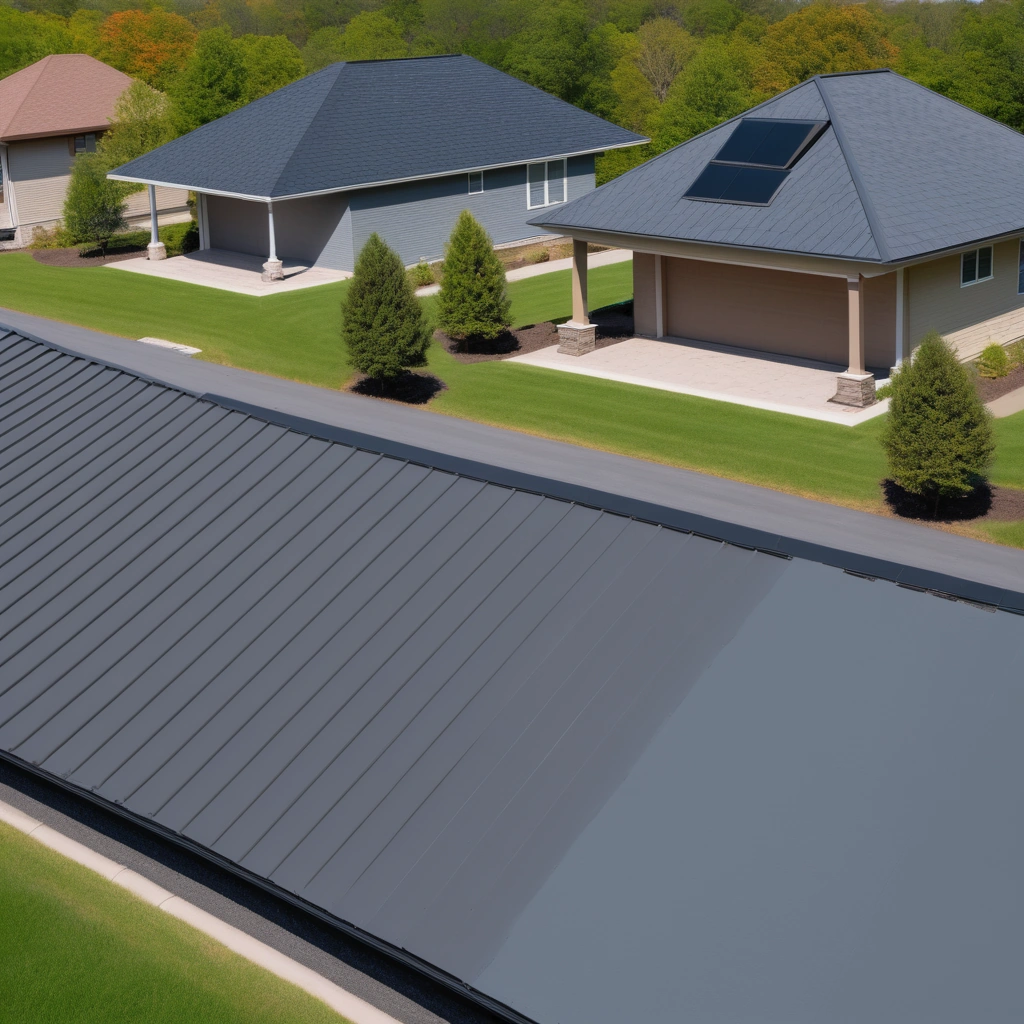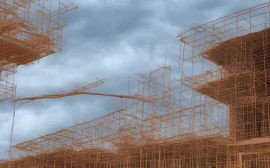Asphalt vs. Metal Roof: A Homeowner’s Guide to Choosing the Right Option
The roof over your head is more than just shelter; it’s a critical investment that protects your family, belongings, and the overall value of your home. In the 2020s, homeowners are faced with an increasing array of roofing options, each promising varying degrees of durability, aesthetics, and energy efficiency. Among the most popular choices are asphalt shingles and metal roofing, but discerning which is the right fit for your needs requires careful consideration. This guide provides a comprehensive comparison of asphalt vs metal roof options, designed to empower you with the knowledge needed to make an informed decision.
We’ll delve into the initial cost vs long-term value, break down the different types of each material, explore installation considerations, analyze energy efficiency, and assess environmental impact. Whether you’re building a new home or replacing an aging roof, this article will serve as your definitive resource. Selecting the best roofing material is a pivotal decision impacting not only your home’s curb appeal but also its financial performance. From a real estate perspective, a well-maintained, aesthetically pleasing roof can significantly enhance property value, attracting discerning buyers willing to invest in quality and longevity.
Conversely, a dilapidated or outdated roof can deter potential purchasers and lead to costly negotiations during the sale process. Therefore, understanding the nuances of residential roofing options is crucial for maximizing your home’s marketability and return on investment. A thorough roofing cost comparison should be factored into your overall financial planning. Furthermore, the choice between asphalt vs metal roof extends beyond mere aesthetics and resale value; it directly influences long-term maintenance expenses and potential energy savings.
Energy efficient roofing options, such as reflective metal roofs, can substantially reduce cooling costs during warmer months, contributing to lower utility bills and a smaller carbon footprint. Homeowners prioritizing sustainable roofing solutions may find metal roofing particularly appealing due to its recyclability and extended lifespan. Conversely, while asphalt shingles may present a lower upfront investment, their shorter lifespan and potential for heat absorption could result in higher long-term costs and environmental impact. The decision requires a holistic assessment of both immediate and future financial implications.
Ultimately, selecting the ideal roofing system necessitates a comprehensive evaluation of your individual needs, budget constraints, and long-term financial goals. Consulting with experienced roofing contractors is essential to obtain accurate estimates for roof installation and roof maintenance, ensuring proper installation and maximizing the lifespan of your chosen material. By carefully weighing the pros and cons of asphalt shingles versus metal roofing, homeowners can make an informed decision that not only protects their investment but also enhances their home’s value, energy efficiency, and overall sustainability.
Initial Cost vs. Long-Term Value
One of the first considerations for any homeowner navigating the complexities of roof replacement is the upfront roofing cost. Asphalt shingles, a ubiquitous residential roofing material, generally present a lower initial investment compared to metal roofing systems. For instance, installing asphalt shingles on a typical 2,000-square-foot roof might range from $8,000 to $15,000, encompassing both materials and labor. Conversely, a similar metal roof installation could range from $16,000 to $40,000 or even higher, depending on the specific metal type, gauge, and complexity of the roof design.
This significant difference often makes asphalt shingles an attractive option for budget-conscious homeowners seeking immediate savings during their home improvement project. However, focusing solely on the initial price tag can be a shortsighted approach to financial planning when evaluating asphalt vs metal roof options. It’s crucial to consider the long-term value proposition when selecting the best roofing material for your home. Metal roofs boast a significantly extended lifespan, often exceeding 40-70 years or more, a stark contrast to asphalt shingles, which typically last 15-30 years.
This extended lifespan translates to fewer roof replacement projects over the long run, potentially saving homeowners a considerable sum in avoided material and roof installation costs. While the upfront investment is higher, the durability of metal roofing minimizes the need for frequent replacements, making it a potentially more sustainable and financially sound choice over the life of the structure. Furthermore, certain metal roofing types offer exceptional resistance to extreme weather conditions, further extending their lifespan and reducing the need for costly repairs.
Beyond lifespan, roof maintenance requirements play a critical role in determining the true cost of ownership. Asphalt shingles typically require periodic maintenance, including cleaning to remove algae and moss growth, as well as minor repairs to address damaged or missing shingles. These ongoing maintenance tasks contribute to the overall expense of owning an asphalt shingle roof. Metal roofs, on the other hand, are generally low-maintenance, requiring minimal upkeep beyond occasional cleaning. This reduction in maintenance translates to lower long-term costs and less hassle for homeowners.
Moreover, the superior durability of metal roofing minimizes the risk of leaks and other weather-related damage, further reducing potential repair expenses. This makes metal roofing an attractive option for homeowners seeking a hassle-free and durable roofing solution. Finally, the choice between asphalt vs metal roof can significantly impact a home’s resale value, a crucial consideration in real estate planning. A well-maintained metal roof can enhance a home’s curb appeal and signal quality construction to potential buyers.
Many home appraisers recognize the long-term value and durability of metal roofing, often factoring it into the overall valuation of the property. While quantifying the exact increase in resale value can be challenging, anecdotal evidence and real estate market trends suggest that homes with metal roofs often command a premium compared to those with asphalt shingles. This potential boost in resale value can help homeowners recoup a significant portion of their initial investment in metal roofing, making it a financially prudent choice for those planning to sell their homes in the future. Investing in energy efficient roofing options can also increase property value, making it a beneficial choice for homeowners.
Asphalt Shingle vs. Metal Roofing Types: Durability, Aesthetics, and Weather Resistance
Asphalt shingles come in various types, each with its own set of pros and cons. 3-tab shingles are the most economical option, offering a basic level of protection and a flat, uniform appearance. However, they are less durable than other options, with a typical lifespan of 15-20 years. Architectural or dimensional shingles, on the other hand, offer a more textured, visually appealing look and greater durability, with a lifespan of 20-30 years. They are also more resistant to wind and hail.
Metal roofing also comes in several forms. Standing seam metal roofs are known for their clean lines, durability, and weathertightness. They are typically made of steel or aluminum and can last 50 years or more. Corrugated metal roofing is a more economical option, often used in agricultural or industrial settings, but can also be used for residential properties seeking a rustic aesthetic. Metal shingles mimic the look of traditional roofing materials like asphalt, slate, or tile, while offering the durability and longevity of metal.
Regarding weather resistance, both asphalt and metal roofs offer good protection, but metal roofs generally outperform asphalt in extreme conditions. Metal roofs are highly resistant to wind, hail, and fire, while asphalt shingles can be damaged by high winds and hail. Fire resistance is another key advantage of metal roofing, providing an added layer of safety for your home. From a real estate perspective, the choice between asphalt vs metal roof significantly impacts property valuation and curb appeal.
A well-maintained roof signals to potential buyers that the home is structurally sound and cared for. While architectural asphalt shingles offer an immediate aesthetic upgrade, enhancing resale value modestly, a metal roof is often perceived as a premium feature, potentially leading to a higher selling price and faster closing. For homeowners considering roof replacement as a home improvement project, understanding the long-term return on investment (ROI) is crucial; factoring in the extended lifespan and reduced maintenance associated with metal roofing can justify the higher initial roofing cost comparison.
When evaluating the best roofing material for your home, consider the climate and potential for severe weather. In regions prone to hurricanes or hailstorms, the superior durability of metal roofing offers a distinct advantage. While asphalt shingles can withstand moderate weather conditions, they are more susceptible to damage from high winds and large hailstones, potentially leading to costly repairs or premature roof replacement. Metal roofs, on the other hand, can often withstand winds up to 140 mph and resist hail damage, providing homeowners with greater peace of mind and potentially lower insurance premiums.
This resilience translates to long lasting roof performance, minimizing the need for frequent roof maintenance and repairs, a significant factor in financial planning for homeownership. Therefore, the investment in durable roofing can act as a safeguard against unforeseen expenses related to weather damage. Furthermore, homeowners should consider the sustainability aspects of their roofing choice. Metal roofs are often made from recycled materials and are 100% recyclable at the end of their lifespan, making them an environmentally friendly option.
Asphalt shingles, on the other hand, are typically disposed of in landfills, contributing to environmental waste. While some asphalt shingle recycling programs exist, they are not as widely available or efficient as metal recycling. Choosing metal roofing aligns with a growing trend towards sustainable roofing and responsible homeownership, appealing to environmentally conscious buyers and potentially qualifying homeowners for green building incentives or tax credits. This commitment to energy efficient roofing not only benefits the environment but can also translate to long-term savings on energy bills and increased property value, making it a financially sound decision for forward-thinking homeowners. Selecting reputable roofing contractors experienced in both asphalt shingles and metal roofing is crucial for proper roof installation and ensuring the longevity of either roofing system.
Installation Considerations and Labor Costs
Installation is a critical factor in the performance and longevity of any roofing system. Asphalt shingle installation is generally less complex and requires less specialized skills compared to metal roofing installation. This translates to lower labor costs, making asphalt shingles an attractive option for budget-conscious homeowners. Metal roofing installation, on the other hand, requires specialized tools and expertise to ensure proper fitting and sealing. Improper installation can lead to leaks and other problems, negating the benefits of the material, and potentially leading to costly repairs down the line.
Typical labor costs for asphalt shingle installation range from $3 to $5 per square foot, while metal roofing installation can range from $5 to $10 per square foot or more. This roofing cost comparison clearly demonstrates the initial savings associated with asphalt. Beyond the base cost, consider the long-term financial implications of proper installation. A poorly installed asphalt roof might require repairs or even premature roof replacement, eroding any initial savings. Metal roofing, while more expensive upfront, offers superior durability and a longer lifespan, potentially saving money over the long haul.
Choosing the best roofing material involves weighing these factors carefully. Furthermore, the complexity of metal roof installation often necessitates a higher level of expertise, and therefore, it is vital to select a roofing contractor with a proven track record in metal roofing. It’s crucial to hire experienced and licensed roofing contractors for both asphalt and metal roofing installations. Check online directories, verify licensing, check insurance, read customer reviews, and request multiple free estimates. Don’t hesitate to ask for references and inspect previous work. A professional residential roofing installation will ensure that your roof performs as intended and protects your home for years to come. Regular roof maintenance, regardless of the material, is also essential for maximizing its lifespan and preventing costly problems. Investing in quality roof installation and maintenance is a smart financial decision that protects your property value and provides peace of mind.
Energy Efficiency, Environmental Impact, and Regional Suitability
Energy efficiency stands as a pivotal consideration in contemporary home improvement and financial planning. Metal roofs, lauded for their high reflectivity, offer a tangible advantage by deflecting a significant portion of solar radiation, thereby curtailing heat absorption and reducing cooling expenses. This directly translates to lower utility bills, a key factor in long-term financial savings for homeowners. While asphalt shingles, the traditional choice for residential roofing, tend to absorb more heat, specialized asphalt shingles with reflective granules are available.
However, even with these advancements, their energy efficiency generally lags behind that of metal roofing. Studies, including those conducted by the Oak Ridge National Laboratory, have demonstrated that energy efficient roofing like metal can reduce cooling costs by as much as 25% compared to standard asphalt shingles, making it a compelling option for homeowners seeking to optimize their energy consumption and reduce their carbon footprint. This differential in energy performance impacts not only monthly expenses but also the overall value proposition of a home.
From an environmental impact perspective, the choice between asphalt vs metal roof presents a clear divergence. Asphalt shingles, being petroleum-based products, pose challenges in terms of recyclability, contributing to landfill waste upon roof replacement. Metal roofing, conversely, often incorporates recycled materials in its production and boasts full recyclability at the end of its lifespan. This inherent recyclability aligns with the principles of sustainable roofing and appeals to environmentally conscious homeowners. While the embodied energy—the energy consumed during manufacturing and transportation—is typically higher for metal roofing compared to asphalt shingles, the extended lifespan of metal roofs, often exceeding 50 years, coupled with their recyclability, effectively offsets this initial impact over time.
Choosing a sustainable roofing option like metal can also enhance a home’s appeal to environmentally aware buyers, potentially increasing its real estate value. Engaging roofing contractors with expertise in sustainable practices is crucial for minimizing environmental impact during roof installation and maintenance. Regional suitability is paramount when selecting the best roofing material for a home. Metal roofs exhibit exceptional versatility, proving well-suited for diverse climates, including coastal regions prone to salt air corrosion, snowy areas susceptible to ice dam formation, and desert environments characterized by intense solar radiation.
Their durability and resistance to extreme weather conditions make them a long lasting roof solution. Asphalt shingles, while adaptable to many climates, may exhibit vulnerabilities in the face of high winds or heavy hail, potentially leading to premature roof replacement and increased roofing cost comparison. For instance, in coastal areas, metal roofs offer superior resistance to salt-induced degradation, while in snowy regions, their smooth surfaces facilitate snow shedding, mitigating the risk of ice dam formation.
Ultimately, the optimal choice between asphalt vs metal roof hinges on a homeowner’s specific needs, budgetary considerations, and the prevailing climate conditions. A comprehensive assessment, involving consultations with reputable roofing contractors, is essential for making an informed decision that aligns with both financial planning objectives and long-term home improvement goals. Factors such as roof installation costs, anticipated roof maintenance requirements, and the desired aesthetic appeal should all be carefully weighed to determine the most appropriate residential roofing solution.



